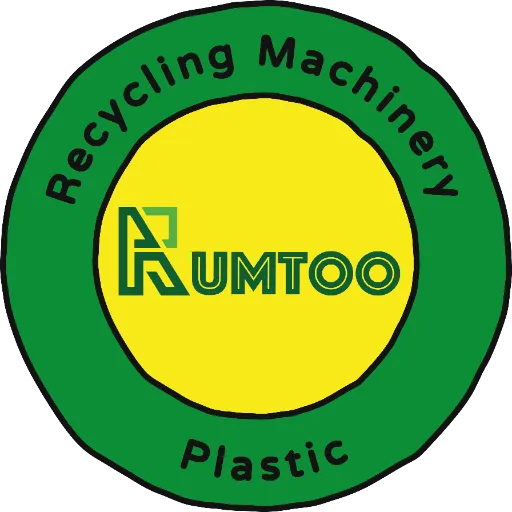In een baanbrekende stap heeft het Buk-gu-district in Daegu, Zuid-Korea, een baanbrekend recyclinginitiatief geïntroduceerd dat de manier waarop inwoners omgaan met milieuverantwoordelijkheid radicaal wil veranderen. Op 15 april onthulde het district een AI-aangedreven, onbemande recyclingmachine die burgers beloont voor hun deelname aan dit milieuvriendelijke initiatief.
Het systeem is ontworpen om recycling te stimuleren door middel van tastbare beloningen. Voor elke doorzichtige PET-fles die in de machine wordt gedeponeerd, verdienen bewoners 10 punten, wat gelijk staat aan 10 won. Om een balans te behouden tussen actieve betrokkenheid en efficiënt recyclingbeheer, mogen inwoners maximaal 50 flessen per dag deponeren.
De gespaarde punten kunnen vervolgens eenvoudig worden omgezet in geld via de website of een mobiele app van de exploitant, wat burgers een directe financiële stimulans biedt om milieubewuste maatregelen te nemen. Deze innovatieve aanpak is warm ontvangen door de lokale gemeenschap, omdat het niet alleen de inspanningen op het gebied van afvalvermindering bevordert, maar ook een tastbare beloning biedt voor hun deelname.
Uitbreiding van het programma voor grotere impact
Het succes van dit pilotproject heeft de autoriteiten in Buk-gu ertoe aangezet het programma verder op te schalen. Nadat het district vorig jaar aanvankelijk op twee locaties machines had geïnstalleerd, heeft het nu besloten om extra units te plaatsen bij acht extra welzijnscentra, waarmee het totale aantal recyclingstations op tien komt.
Deze strategische uitbreiding toont de toewijding van het district aan het bevorderen van duurzaamheid en het verbeteren van de gezondheid van het milieu binnen de gemeenschap. Door het recyclingproces toegankelijker en aantrekkelijker te maken, moedigt Buk-gu haar inwoners aan om actief deel te nemen aan de gezamenlijke inspanning om afval te verminderen en een groenere toekomst te bevorderen.
Technologie inzetten voor innovatie in afvalbeheer
De beslissing van het district Buk-gu om recycling te 'gamificeren' is een baanbrekende strategie die een precedent schept voor andere gemeenten die willen innoveren op het gebied van afvalbeheer en duurzaamheid. Deze aanpak speelt niet alleen in op de economische belangen van burgers, maar sluit ook aan bij hun ecologische verantwoordelijkheden, wat een win-winsituatie creëert voor zowel het milieu als de gemeenschap.
Wereldwijd winnen vergelijkbare initiatieven voor slimme recycling aan populariteit, nu steden de kracht van opkomende technologieën, zoals AI en IoT, willen benutten om afvalbeheer te stroomlijnen en recyclinginspanningen te verbeteren. De integratie van deze geavanceerde systemen maakt efficiënte sortering, inzameling en data-analyse mogelijk, wat leidt tot hogere recyclingpercentages en een duurzamere toekomst.
Het aanpakken van uitdagingen en overwegingen
Hoewel het Buk-gu-recyclingprogramma talloze voordelen biedt, brengt het ook uitdagingen met zich mee. De implementatie en het onderhoud van dergelijke geavanceerde recyclingsystemen kunnen kostbaar zijn, en het succes van het programma hangt uiteindelijk af van de betrokkenheid van de deelnemers en het juiste gebruik van de technologie.
Bovendien kunnen er zorgen ontstaan over de privacyaspecten van deze AI-gestuurde systemen, die gebruikersgedrag en recyclinggewoonten volgen. Ethische overwegingen rond databeheer en de mogelijkheid van misbruik of misbruik van deze informatie moeten zorgvuldig worden overwogen.
Bovendien is er behoefte aan het evalueren van de effectiviteit op de lange termijn van gestimuleerde recyclingprogramma's bij het verminderen van de totale hoeveelheid gemeentelijk afval. Er bestaat namelijk het risico dat afval simpelweg wordt verschoven van bewoners die niet recyclen naar degenen die de machines wel gebruiken.
Conclusie: de weg vrijmaken voor een duurzame toekomst
Het Buk-gu district in Daegu heeft een nieuwe standaard gezet voor milieubeheer door innovatieve technologie te benutten en burgerparticipatie te belonen om duurzaamheid te stimuleren. Door het recyclingproces te gamificeren en tastbare financiële prikkels te bieden, heeft het district zijn inwoners succesvol aangemoedigd om een actieve rol te spelen in afvalvermindering en milieubehoud.
Naarmate het programma zich uitbreidt en andere gemeenten het opmerken, biedt de potentie voor brede acceptatie van vergelijkbare slimme recyclinginitiatieven perspectief voor een toekomst waarin verantwoord afvalbeheer en ecologische verantwoordelijkheid niet alleen ambities zijn, maar een tastbare realiteit. Door samenwerking en betrokkenheid van de gemeenschap kan de weg naar een duurzame toekomst worden geplaveid, één gerecyclede fles tegelijk.
